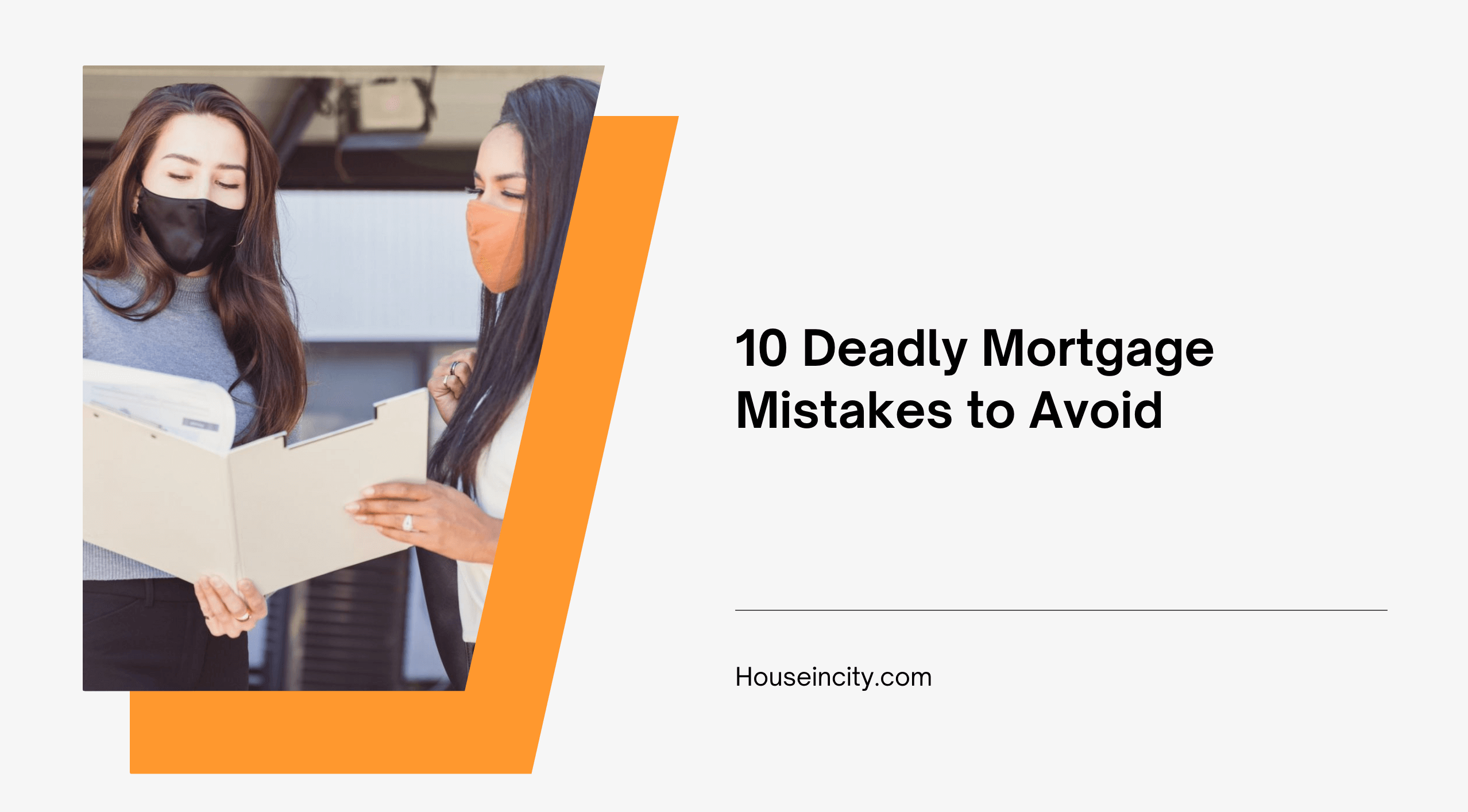It is not every day that people buy homes. Thus it is not unusual for people to commit some deadly mistakes that affect their mortgage. Knowledge about these mistakes prior to planning to buy a home will go a long way in saving thousands of dollars as well as unnecessary financial stress. Knowledge is power when buying a home and knowledge about mortgage is more so. Given below is a list of the ten deadly mortgage mistakes that people usually commit.
1. Not enlightening their mortgage brokers about their financial condition and hiding important facts from them. However embarrassing some of the facts about your finances may be, you should take mortgage brokers fully into your confidence. Any previous financial difficulties that you had faced or are facing now should be discussed with your mortgage broker. Only with all data about your financial condition can your mortgage broker help you to get the most suitable mortgage loan.
2. Purchasing very expensive things or making large purchases before applying for a mortgage. You may mistakenly think that you should get major purchases out of the way before applying for a mortgage. The effect of a large outstanding loan is that it pulls down your credit rating drastically. For example a couple were surprised to find that their credit rating had fallen by several points after they had bought an expensive car. A large outstanding debt has that kind of effect on your credit. How much of a home you are eligible for, down payment and interest rates depend on your credit rating.
3. Choosing a lender unwisely. Many people have the tendency to go with the first lender that comes their way. There are many important considerations when choosing a lender. You must consider several lenders and study what they have to offer before deciding to do business with one. Some of the factors that you should consider while choosing a lender are mortgage rate, APR, originating fees and accessibility. You should be able to discuss the details of you financing with your lender and easily contact for any other information. For this a local lender may be more suitable even if the rates are the lowest.
4. Not getting pre-approved for a loan. Being pre-approved will help you to get the best deal and move confidently in a negotiation. You know where you stand and can make firm commitments. This way you can save thousands of dollars. A good real estate agent will ask you to get pre-approved first before showing you any homes. This way a lot of confusion is avoided and you know where you stand financially.
5. Not having a budget planned out. This is a major cause of many recent foreclosures. You and your spouse should sit down together and make a budget to find out how much money you can comfortably spare now and in the future without causing any major upheavals in your lifestyle, your children’s education. medical and other emergencies should be factored into your budget. Many people have lost their dream homes because they were unable to meet their mortgage commitments.
6. Not making provision for closing costs at the outset. One should be fully aware of and be prepared for all closing costs. The closing costs can be anywhere between 3 to 5 % of the cost of a home and amount to quite a lot. Closing costs usually come as a surprise to many home buyers who are unprepared for them. The buyer is usually required to pay all closing costs on closing day which include taxes, attorney and other professional fees, taxes title and homeowner’s insurance, lender’s fees, etc.
Not being fully prepared for these can cause unnecessary embarrassment and disruption.
7. Not keeping credit card bills under control. Although it is convenient to use credit cards it is very easy to run up huge unpaid credit with them. This will adversely affect your credit rating and your ability to get the best rates and terms when applying for a loan. Thus you should start cutting down your credit card bills some time before applying for a mortgage loan. You will need the coperation of your spouse and other family members for this.
8. Co-signing someone else’s loan. Although it may seem to be a innocuous good deed at the time, you could be taking on unnecessary liability that may affect your capability to buy your own home. So be careful before agreeing to co-sign someone else’s loan.
9. Not making payments in time or defaulting on payments. If you have delayed any loan payments or defaulted during the previous year it will drastically affect your ability to get a loan or the best possible terms if you manage to get one. If you are planning to buy a home sometime in the near future you must avoid such a situation under all circumstances.
10. Opting for the wrong type of loan. In the present day real estate market, wilh slow appreciation and falling real estate prices, using a payment option adjustable rate or an interest only loan can prove to be a very costly mistake. People usually use these types of loans to buy expensive homes that they cannot otherwise afford and can end up with a mortgage value much higher than the value of their home.
